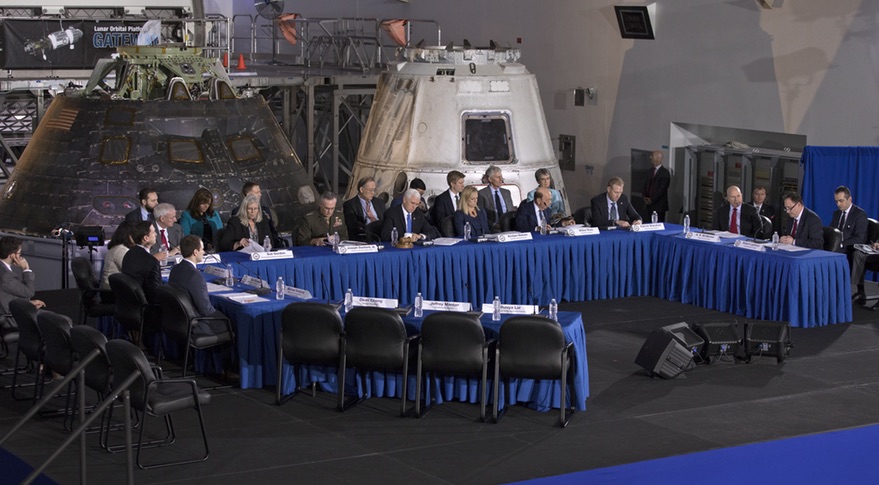Is Macron's Call To Buy European Realistic For The EU?

Table of Contents
Economic Feasibility of a "Buy European" Policy
Assessing the Current State of European Production
The success of a "Buy European" initiative hinges on the competitiveness of European industries. Can European producers meet the demand if prioritized? A comprehensive assessment is crucial.
- Manufacturing: While Europe retains strengths in certain high-tech manufacturing sectors, it faces stiff competition from lower-cost producers in Asia. Reshoring and upskilling the workforce are vital.
- Technology: The tech sector presents a mixed bag. Europe excels in specific niches (e.g., renewable energy technologies), but lags behind the US and China in overall market share. Increased investment in R&D and fostering a more vibrant start-up ecosystem are critical for catching up.
- Agriculture: European agriculture is relatively strong, but faces challenges from climate change and global trade pressures. Supporting sustainable farming practices and maintaining high quality standards is essential for maintaining competitiveness.
- SMEs: Small and Medium-sized Enterprises are the backbone of many European economies. However, they often lack the resources to compete with larger multinational corporations. Targeted support programs and easier access to finance are vital for their success. Globalization and intricate supply chains pose significant challenges. Many European products rely on components sourced globally, making a complete shift to exclusively European sourcing difficult and potentially expensive.
The Potential Impact on Consumer Prices
A shift towards "Buy European" could significantly impact consumer prices. While supporting local producers is laudable, it could lead to higher costs for consumers.
- Price Elasticity: The price sensitivity of consumers varies greatly depending on the product. Essential goods might experience higher price elasticity (meaning consumers are more sensitive to price changes), while luxury items might show lower elasticity.
- Balancing Act: The potential price increases must be weighed against the benefits of supporting European jobs and reducing reliance on imports. Careful policy implementation is necessary to minimize negative impacts on purchasing power.
- Government Intervention: Government subsidies or tax breaks for European producers could mitigate price increases. However, this would necessitate careful consideration of budget implications and potential distortion of the market.
Trade Implications and International Relations
A "Buy European" policy carries significant trade implications and could strain international relations.
- Trade Wars: Prioritizing domestic producers could invite retaliatory tariffs from other countries, leading to trade wars and harming overall economic growth.
- WTO Compliance: The EU must ensure its policies comply with World Trade Organization regulations to avoid legal challenges.
- Diplomatic Tensions: The policy could strain relations with key trading partners, undermining collaborative efforts on other global issues. A balanced approach, emphasizing cooperation alongside domestic support, is essential.
Political and Social Challenges to Implementing "Buy European"
National Sovereignty and Protectionism
Balancing national interests with EU-wide objectives is a major hurdle.
- Differing Economic Development: Member states have vastly different levels of economic development, making a uniform "Buy European" approach challenging. Some countries might benefit more than others.
- Protectionism Concerns: Critics argue that prioritizing European goods could lead to protectionist measures that stifle competition and innovation, contradicting the principles of a free market.
- EU-National Policy Conflicts: National policies might clash with EU regulations, creating bureaucratic hurdles and implementation difficulties.
Public Opinion and Consumer Behavior
Consumer preferences and habits significantly influence the success of any "Buy European" initiative.
- Consumer Attitudes: Surveys reveal mixed public opinion on "Buy European" policies. While some support it for ethical or nationalistic reasons, others prioritize price and quality above all else.
- Marketing and Branding: Effective marketing and branding campaigns can sway consumer choices. Highlighting the quality, sustainability, and ethical production of European goods is crucial.
- Price and Quality: Ultimately, consumers are influenced by a combination of factors. A balance must be struck between supporting European producers and maintaining affordability and quality.
The Role of Lobbying and Interest Groups
Powerful stakeholders exert significant influence on policymaking.
- Industry Lobbying: Industries benefitting from or negatively impacted by "Buy European" will actively lobby policymakers, potentially shaping policy outcomes to favor their interests.
- Multinational Corporations: Large multinational corporations with diverse operations across the EU and globally might influence policies to maintain their competitive advantage.
- Consumer Advocacy Groups: Consumer advocacy groups will play a vital role in ensuring the interests of consumers are considered in policy development.
Conclusion
This article explored the complexities of President Macron's call to "Buy European," weighing its economic feasibility against the political and social challenges. While boosting European production offers potential benefits like job creation and greater economic independence, significant hurdles remain, including increased prices, international trade implications, and navigating differing national interests. The success of a "Buy European" policy hinges on careful planning, effective communication, and a willingness to address the concerns of consumers and businesses alike.
Call to Action: What do you think? Is Macron's call to Buy European a realistic goal for the EU, or is it ultimately unrealistic? Share your thoughts and join the discussion! Let's explore the feasibility of a truly European marketplace.

Featured Posts
-
 Clisson Debat Sur Le Port De Symboles Religieux Au College
May 21, 2025
Clisson Debat Sur Le Port De Symboles Religieux Au College
May 21, 2025 -
 Coldplay Concert Review Music Lights And Powerful Messages
May 21, 2025
Coldplay Concert Review Music Lights And Powerful Messages
May 21, 2025 -
 Outrun Video Game Adaptation Michael Bay At The Helm Sydney Sweeney To Star
May 21, 2025
Outrun Video Game Adaptation Michael Bay At The Helm Sydney Sweeney To Star
May 21, 2025 -
 Loire Atlantique Quiz D Histoire Gastronomie Et Culture Generale
May 21, 2025
Loire Atlantique Quiz D Histoire Gastronomie Et Culture Generale
May 21, 2025 -
 New Attempt To Break The Trans Australia Running Record
May 21, 2025
New Attempt To Break The Trans Australia Running Record
May 21, 2025
Latest Posts
-
 Chinas Space Based Supercomputer A Technological And Geopolitical Analysis
May 21, 2025
Chinas Space Based Supercomputer A Technological And Geopolitical Analysis
May 21, 2025 -
 The Challenges And Opportunities Of Chinas Space Supercomputer Initiative
May 21, 2025
The Challenges And Opportunities Of Chinas Space Supercomputer Initiative
May 21, 2025 -
 A Supercomputer In Space Chinas Technological Advancement
May 21, 2025
A Supercomputer In Space Chinas Technological Advancement
May 21, 2025 -
 Chinas Next Giant Leap Building A Supercomputer In Orbit
May 21, 2025
Chinas Next Giant Leap Building A Supercomputer In Orbit
May 21, 2025 -
 Space Based Supercomputing Chinas Ambitious Project Takes Shape
May 21, 2025
Space Based Supercomputing Chinas Ambitious Project Takes Shape
May 21, 2025
